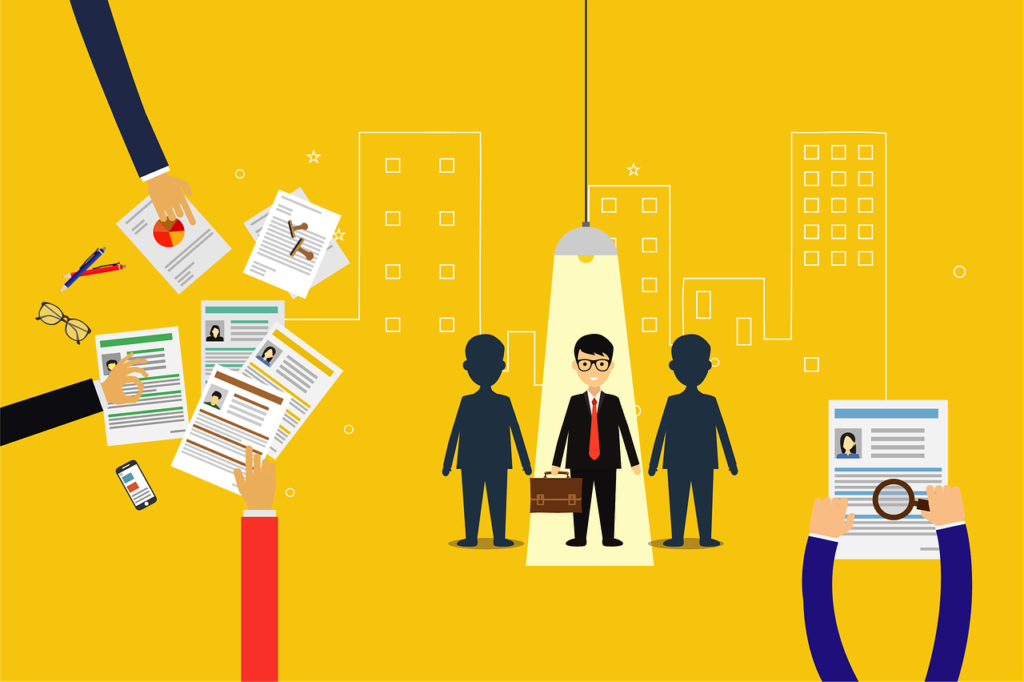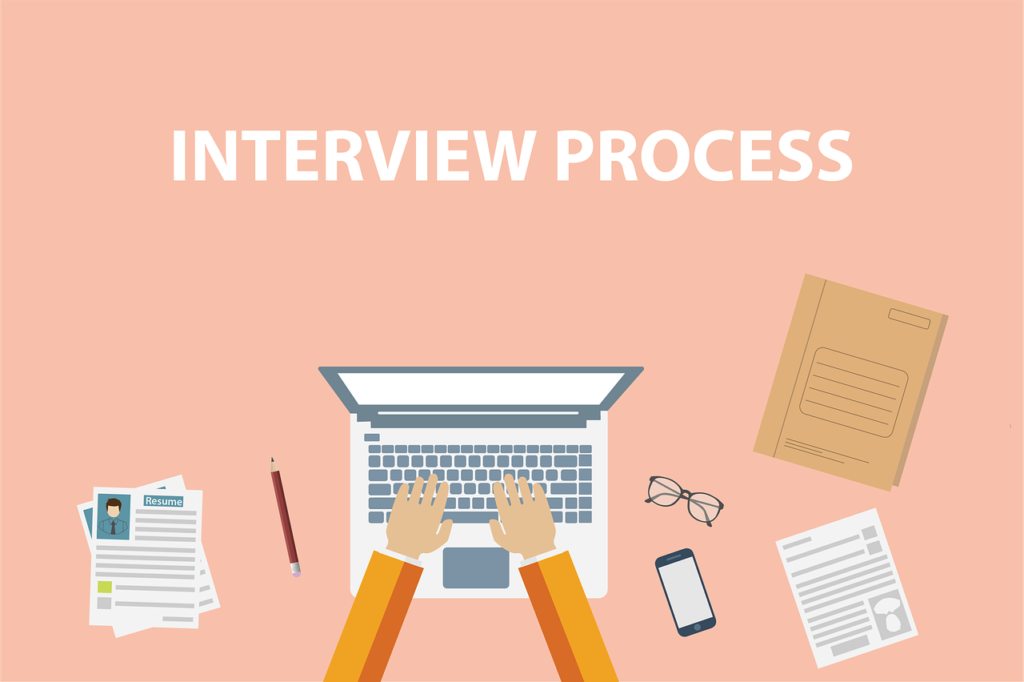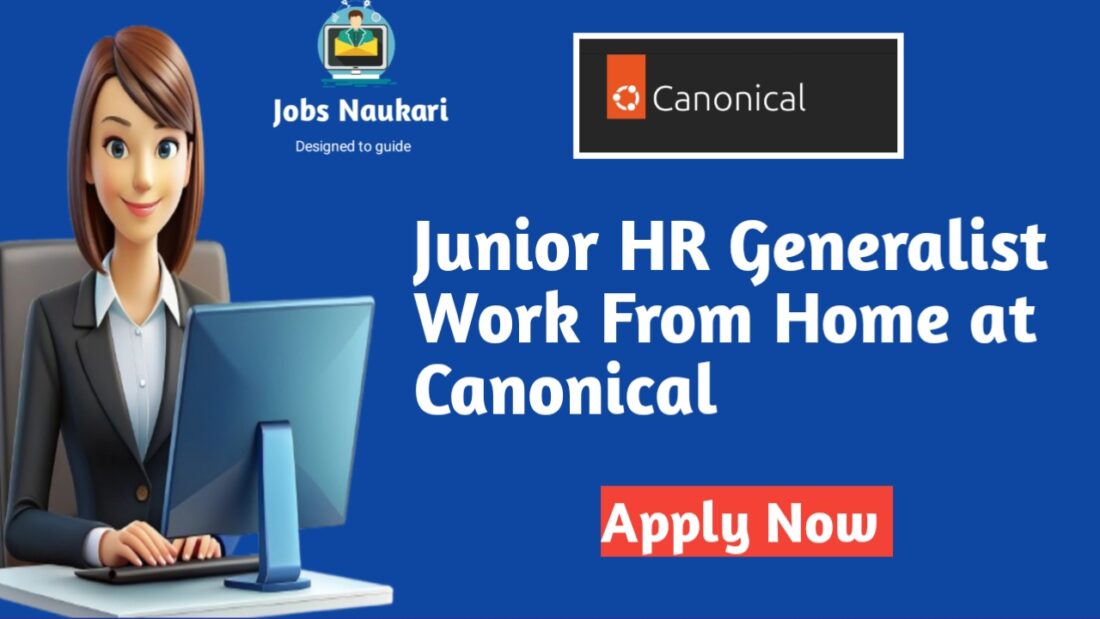Job Title: Junior HR Generalist
Location: Remote (or specify location)
About Canonical: Canonical is the company behind Ubuntu, one of the world’s most popular Linux distributions. The company is dedicated to creating open-source software and supporting a global community of developers and users.
Job Overview: As a Junior HR Generalist at Canonical, you will be part of a dynamic HR team, contributing to the success of the company by providing a broad range of HR support. You will assist with the day-to-day HR operations, supporting employee relations, recruitment, performance management, and learning and development. You will work closely with team members across various departments to ensure the smooth delivery of HR services and foster a positive work environment.

Key Responsibilities:
- Assist in recruitment and onboarding processes, including scheduling interviews, communicating with candidates, and managing job postings.
- Support employee relations by addressing employee concerns and assisting in conflict resolution.
- Help manage employee data and maintain accurate HR records in compliance with company policies and legal regulations.
- Support performance management initiatives, including coordinating reviews and appraisals.
- Assist with payroll processing and benefits administration.
- Organize and assist in the execution of employee training and development programs.
- Handle administrative tasks, such as preparing HR reports, employee communication, and maintaining internal documentation.
- Contribute to HR projects aimed at improving employee engagement and organizational culture.
Required Skills and Qualifications:
- Bachelor’s degree in Human Resources, Business Administration, or related field.
- Previous experience (or internship) in an HR-related role is a plus, though not required.
- Strong communication and interpersonal skills.
- Excellent organizational skills and attention to detail.
- Ability to work independently and as part of a team.
- Proficiency in Microsoft Office Suite (Excel, Word, PowerPoint) and familiarity with HR software is desirable.
- Knowledge of labor laws and HR best practices is a plus.
Desirable Attributes:
- Proactive and eager to learn in a fast-paced, global work environment.
- Ability to manage multiple tasks and prioritize effectively.
- A positive attitude and a passion for helping others.
Why Canonical?
- Competitive salary and benefits.
- Flexible working arrangements.
- Opportunities for career growth and development.
- A supportive, inclusive, and diverse company culture.

Here’s a list of frequently asked questions (FAQs) for a Junior HR Generalist role. These questions are commonly asked in interviews and can serve as a reference to help prepare:
1. What interests you about working in Human Resources?
- This question is meant to assess your motivation for pursuing a career in HR. Explain why you’re drawn to people management, employee relations, recruitment, or organizational development.
2. Can you describe your understanding of the role of a Junior HR Generalist?
- A Junior HR Generalist typically supports the HR team in various administrative and operational tasks like recruitment, employee relations, benefits administration, and maintaining employee records.
3. How do you handle confidentiality in the workplace?
- HR professionals deal with sensitive information regularly. Demonstrate your ability to handle confidential data responsibly and with integrity.
4. What experience do you have with recruitment or onboarding processes?
- Provide examples from any prior experience (internships, volunteer roles, or part-time jobs) where you assisted in hiring, interviewed candidates, or helped with employee orientation.
5. How do you handle employee conflicts or disputes?
- HR is often involved in conflict resolution. Explain any experience you’ve had in addressing disagreements or offer a clear approach to resolving disputes professionally.
6. What do you think are the most important skills for an HR Generalist to have?
- Common responses include communication, attention to detail, problem-solving, knowledge of HR laws, empathy, and organizational skills.
7. How would you ensure compliance with labor laws and company policies?
- Demonstrate your understanding of labor laws (local, state, and federal), and how you would ensure HR policies align with these laws. You can also mention the importance of training and regular audits.
8. How do you stay organized while handling multiple HR tasks at once?
- Discuss time management tools, prioritization techniques, and ways to stay organized when juggling multiple HR responsibilities.
9. Can you describe a time when you had to handle a sensitive situation or difficult employee?
- Give an example of your approach to managing sensitive issues (e.g., performance problems, complaints, or personal matters) while ensuring that the employee’s dignity is maintained.
10. How do you keep yourself updated with HR best practices and trends?
- Mention any HR-related publications, online courses, webinars, or industry groups you follow to keep up with current HR practices and laws.
11. What software or HR systems are you familiar with?
- List any HR software like Workday, ADP, BambooHR, or any similar tools that you’ve worked with. If you don’t have experience, express your willingness to learn quickly.
12. Describe a time when you had to deal with a high-pressure situation. How did you manage it?
- HR professionals can face high-pressure situations, especially during large-scale recruitment or during periods of change. Provide an example that shows your ability to stay calm and handle stress.
13. What do you think are the biggest challenges facing HR professionals today?
- You can talk about trends such as managing remote teams, the importance of diversity and inclusion, balancing work-life integration, and evolving workplace regulations.
14. How do you approach performance management?
- Share your knowledge of performance evaluations, feedback processes, and how you would work with managers to support employee development and improve performance.
15. Why do you want to work with our company?
- Be sure to research the company beforehand. Show how your values align with theirs, and explain why the organization’s culture or goals interest you.
16. How do you manage administrative tasks like maintaining records and documentation?
- Emphasize your attention to detail, accuracy, and the importance of maintaining updated employee files, reports, and other documentation.
17. How would you ensure a positive employee experience from start to finish?
- Talk about your approach to onboarding, maintaining open communication, offering support during their tenure, and how you help employees feel valued.
18. Can you explain the importance of diversity and inclusion in the workplace?
- Highlight how diversity and inclusion contribute to a positive work environment and how HR can promote these values through policies and programs.
19. What HR-related challenges do you foresee in the next 3-5 years?
- Discuss trends such as the rise of AI in HR processes, evolving workforce expectations, and the increased focus on mental health and well-being in the workplace.
20. How do you approach handling employee feedback or surveys?
- Explain your approach to gathering employee feedback, analyzing the results, and how you would use this data to improve employee engagement and satisfaction.
These questions will give you a good foundation for preparing for a Junior HR Generalist interview. Make sure to tailor your responses based on your skills, experience, and the specific role you’re applying for.
